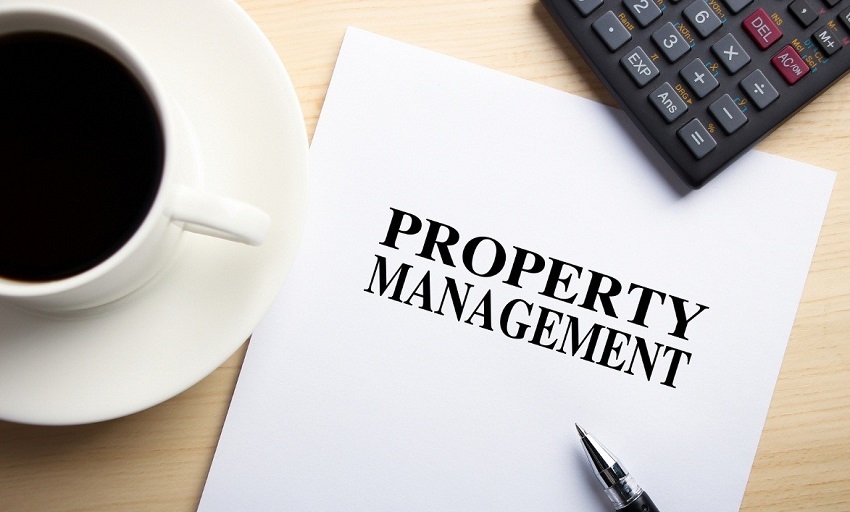
THE ADVANTAGES OF REMOTE PROPERTY MANAGEMENT SERVICES
- November 21, 2023
- OHI

Property management has evolved significantly in recent years, thanks to advancements in technology and changes in work dynamics. One of the most notable developments is the rise of remote property management services. These services offer property owners and managers a range of benefits, from cost savings to enhanced efficiency. In this essay, we will explore the advantages of remote property management services in detail, shedding light on why this approach has gained popularity in the real estate industry.
Remote property management refers to the practice of overseeing and maintaining real estate assets without the need for physical presence on-site. Instead, property managers and owners can leverage technology and specialized service providers to handle various aspects of property management from a distance. This approach has become increasingly feasible and attractive due to several factors.
One of the most apparent advantages of remote property management services is cost savings. Traditional property management often requires a dedicated on-site staff, including maintenance personnel, security personnel, and administrative staff. These on-site resources come with significant costs, including salaries, benefits, and overhead expenses.
By transitioning to a remote management model, property owners can reduce or eliminate many of these expenses. Remote property management services typically offer scalable solutions, allowing property owners to pay for only the services they need. This flexibility results in cost savings that can be reinvested in property improvements or used to boost profitability.
Efficiency is a cornerstone of successful property management, and remote property management services can significantly enhance it. With the help of technology, property managers can remotely monitor and control various aspects of property operations. For example, they can adjust heating and cooling systems, security settings, and access controls with a few clicks on a computer or mobile device.
This level of control and automation not only streamlines operations but also reduces the response time to maintenance issues or security concerns. Property managers can identify and address problems promptly, improving tenant satisfaction and overall property performance.
Remote property management services often provide access to specialized expertise that may not be available in-house. These services typically have a team of professionals with diverse skills and experience in areas such as property maintenance, financial analysis, legal compliance, and marketing.
Property owners can tap into this wealth of knowledge to optimize their property management strategies and make informed decisions. Whether it’s navigating complex regulatory requirements or implementing energy-efficient upgrades, specialized expertise can be a valuable asset in achieving long-term success.
Real estate portfolios can vary significantly in size and complexity. Remote property management services offer scalability and flexibility to accommodate properties of different sizes and types. Whether you own a single-family home or a large apartment complex, remote property management services can be tailored to meet your specific needs.
This scalability is particularly advantageous for property owners looking to expand their portfolios. Instead of hiring and training new on-site staff for each property, owners can rely on remote services to handle additional assets efficiently.
Effective communication is essential for maintaining positive tenant relations. Remote property management services often come with communication tools and platforms that facilitate interaction between property managers and tenants. Online portals, email, and mobile apps make it easier for tenants to report issues, pay rent, and access important information.
Moreover, property managers can use data analytics and tenant feedback collected through these platforms to gain insights into tenant preferences and concerns. This information can be invaluable for tailoring services and amenities to meet tenant expectations, ultimately leading to higher tenant retention rates and increased tenant satisfaction.
Data is a powerful tool in property management, and remote services excel in collecting and analyzing relevant data. Through remote monitoring systems, property managers can gather data on energy usage, maintenance requests, occupancy rates, and financial performance. This data-driven approach enables informed decision-making and allows property owners to identify areas for improvement and cost-saving opportunities.
For instance, by analyzing energy consumption patterns, property managers can implement energy-efficient solutions that reduce utility costs and environmental impact. Similarly, data on maintenance requests can help prioritize and schedule repairs effectively, minimizing disruptions to tenants and extending the life of property assets.
Security is a paramount concern in property management, and remote services offer innovative solutions to bolster security measures. With the integration of smart technology, property managers can remotely control access systems, surveillance cameras, and alarm systems. They can also receive real-time alerts and notifications in case of security breaches or suspicious activities.
Furthermore, remote property management services often provide 24/7 monitoring and emergency response capabilities. This round-the-clock vigilance enhances the safety and security of properties, giving property owners and tenants peace of mind.
Remote property management services can contribute to sustainability and environmental conservation efforts. By optimizing energy usage and reducing resource waste through remote monitoring and control, properties can achieve greater energy efficiency and reduced carbon footprints. Sustainable practices not only benefit the environment but also appeal to eco-conscious tenants and investors.
In conclusion, remote property management services offer a wide array of advantages that are transforming the real estate industry. From cost savings and enhanced efficiency to specialized expertise and data-driven decision-making, these services empower property owners and managers to optimize their operations and maximize returns on their investments. As technology continues to advance and remote property management services evolve, their impact on the real estate sector is likely to grow even more significant.
In an era where remote work and digital solutions have become increasingly prevalent, remote property management aligns with the evolving landscape of property management. Property owners who embrace these services can position themselves for success in an ever-changing and competitive real estate market. As the adage goes, “Adapt or perish,” and remote property management is undoubtedly a promising adaptation for the modern property owner.
Contact us for a customized NO OBLIGATION proposal for outsourcing your accounting activities.









